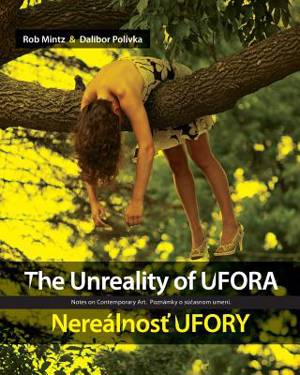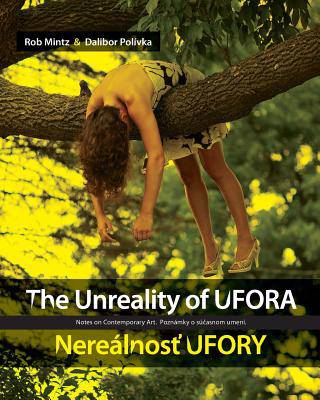
Door een staking bij bpost kan je online bestelling op dit moment iets langer onderweg zijn dan voorzien. Dringend iets nodig? Onze winkels ontvangen jou met open armen!
- Afhalen na 1 uur in een winkel met voorraad
- Gratis thuislevering in België vanaf € 30
- Ruim aanbod met 7 miljoen producten
Door een staking bij bpost kan je online bestelling op dit moment iets langer onderweg zijn dan voorzien. Dringend iets nodig? Onze winkels ontvangen jou met open armen!
- Afhalen na 1 uur in een winkel met voorraad
- Gratis thuislevering in België vanaf € 30
- Ruim aanbod met 7 miljoen producten
Zoeken
The Unreality of UFORA / Nerealnost' UFORY
Notes on Contemporary Art
Dalibor Polivka, Nicolas Bourriaud, Alfredo Cramerotti
Paperback | Engels
€ 66,95
+ 133 punten
Omschrijving
Encouraged by the successes of their co-curated exhibitions Inexpressible (2009), After Hours/ Individual Stories (2010), and You First (2011), artists Dalibor Polívka and Rob Mintz (co-founders of UFORA, the Universal Festival of Relational Art) decided to create an art book depicting how "relational aesthetics" had rocked their world. In this handsomely designed volume, their essays compliment seminal texts by the influential French curator Nicolas Bourriaud (who coined the term "relational aesthetics") and Mostyn gallery director Alfredo Cramerotti. Nicolas Bourriaud's essay "Instable Connections" sets the record straight on the history of the term. Alfredo Cramerotti's piece, "Three Ways of Curating," presents new approaches to creative survival in an ever-shifting, curatorial culture. Delving into "exhibition as medium" and "institutional critique," The Unreality of UFORA presents the work of a cadre of contemporary artists participating in an experimental exhibition. Full of incisive quotations from a variety of experts about the impact of "relational aesthetics," its controversial acceptance, and its place in art history, The Unreality of UFORA should be on the radar of artists, collectors, curators, and art students seeking a high-octane jolt of insight into the relational turn.
Specificaties
Betrokkenen
- Auteur(s):
- Uitgeverij:
Inhoud
- Aantal bladzijden:
- 196
- Taal:
- Engels
Eigenschappen
- Productcode (EAN):
- 9781500473471
- Verschijningsdatum:
- 23/08/2013
- Uitvoering:
- Paperback
- Formaat:
- Trade paperback (VS)
- Afmetingen:
- 203 mm x 254 mm
- Gewicht:
- 399 g

Alleen bij Standaard Boekhandel
+ 133 punten op je klantenkaart van Standaard Boekhandel
Beoordelingen
We publiceren alleen reviews die voldoen aan de voorwaarden voor reviews. Bekijk onze voorwaarden voor reviews.











